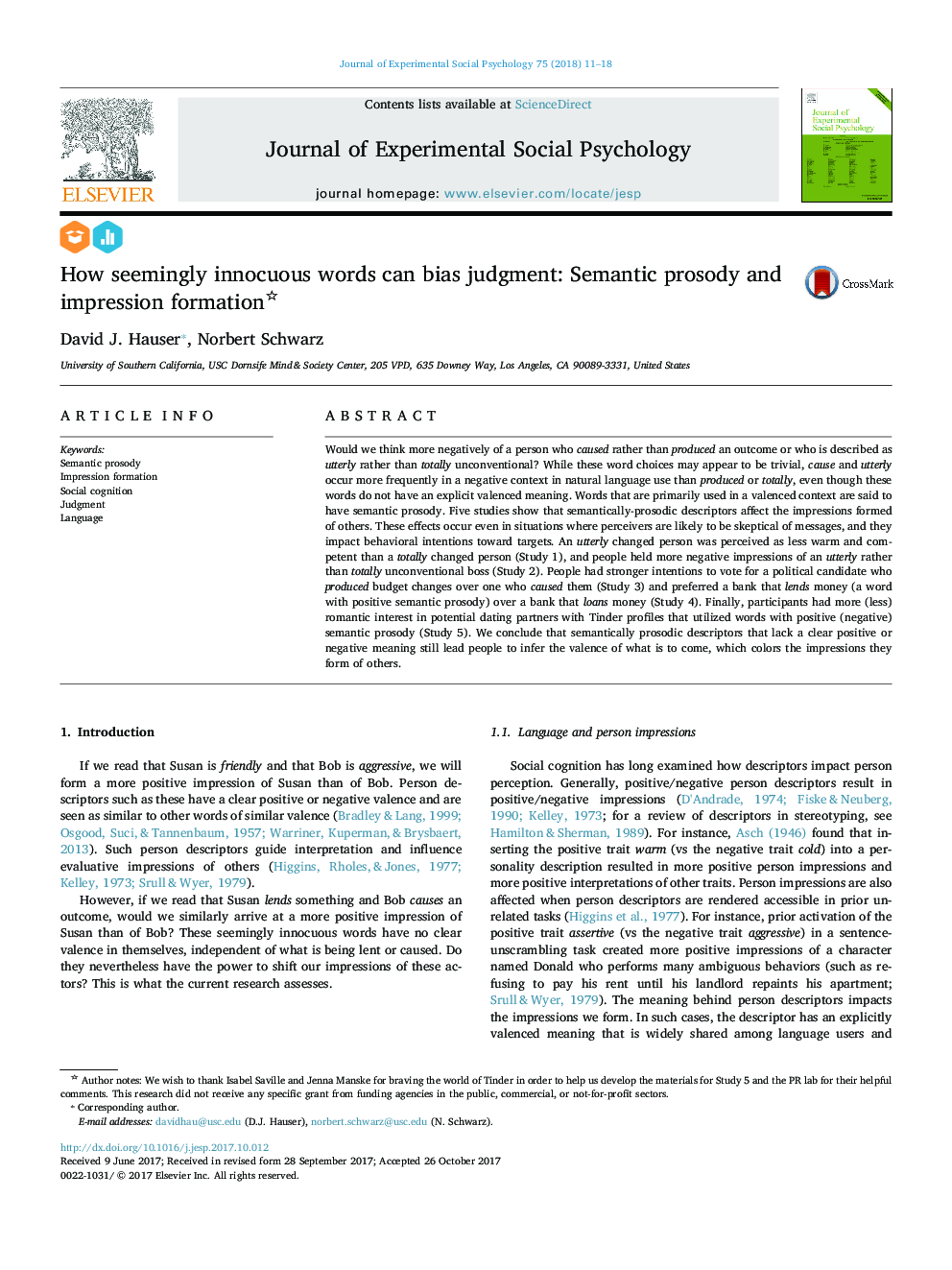| کد مقاله | کد نشریه | سال انتشار | مقاله انگلیسی | نسخه تمام متن |
|---|---|---|---|---|
| 7324210 | 1475848 | 2018 | 8 صفحه PDF | دانلود رایگان |
عنوان انگلیسی مقاله ISI
How seemingly innocuous words can bias judgment: Semantic prosody and impression formation
ترجمه فارسی عنوان
چگونه کلمات ظاهرا بی دغدغه می تواند قضاوت بی عدالتی: شکل ظاهری و شکل گیری معنایی
دانلود مقاله + سفارش ترجمه
دانلود مقاله ISI انگلیسی
رایگان برای ایرانیان
کلمات کلیدی
سم شناسی شکل گیری افسردگی، شناخت اجتماعی، داوری، زبان،
موضوعات مرتبط
علوم زیستی و بیوفناوری
علم عصب شناسی
علوم اعصاب رفتاری
چکیده انگلیسی
Would we think more negatively of a person who caused rather than produced an outcome or who is described as utterly rather than totally unconventional? While these word choices may appear to be trivial, cause and utterly occur more frequently in a negative context in natural language use than produced or totally, even though these words do not have an explicit valenced meaning. Words that are primarily used in a valenced context are said to have semantic prosody. Five studies show that semantically-prosodic descriptors affect the impressions formed of others. These effects occur even in situations where perceivers are likely to be skeptical of messages, and they impact behavioral intentions toward targets. An utterly changed person was perceived as less warm and competent than a totally changed person (Study 1), and people held more negative impressions of an utterly rather than totally unconventional boss (Study 2). People had stronger intentions to vote for a political candidate who produced budget changes over one who caused them (Study 3) and preferred a bank that lends money (a word with positive semantic prosody) over a bank that loans money (Study 4). Finally, participants had more (less) romantic interest in potential dating partners with Tinder profiles that utilized words with positive (negative) semantic prosody (Study 5). We conclude that semantically prosodic descriptors that lack a clear positive or negative meaning still lead people to infer the valence of what is to come, which colors the impressions they form of others.
ناشر
Database: Elsevier - ScienceDirect (ساینس دایرکت)
Journal: Journal of Experimental Social Psychology - Volume 75, March 2018, Pages 11-18
Journal: Journal of Experimental Social Psychology - Volume 75, March 2018, Pages 11-18
نویسندگان
David J. Hauser, Norbert Schwarz,
